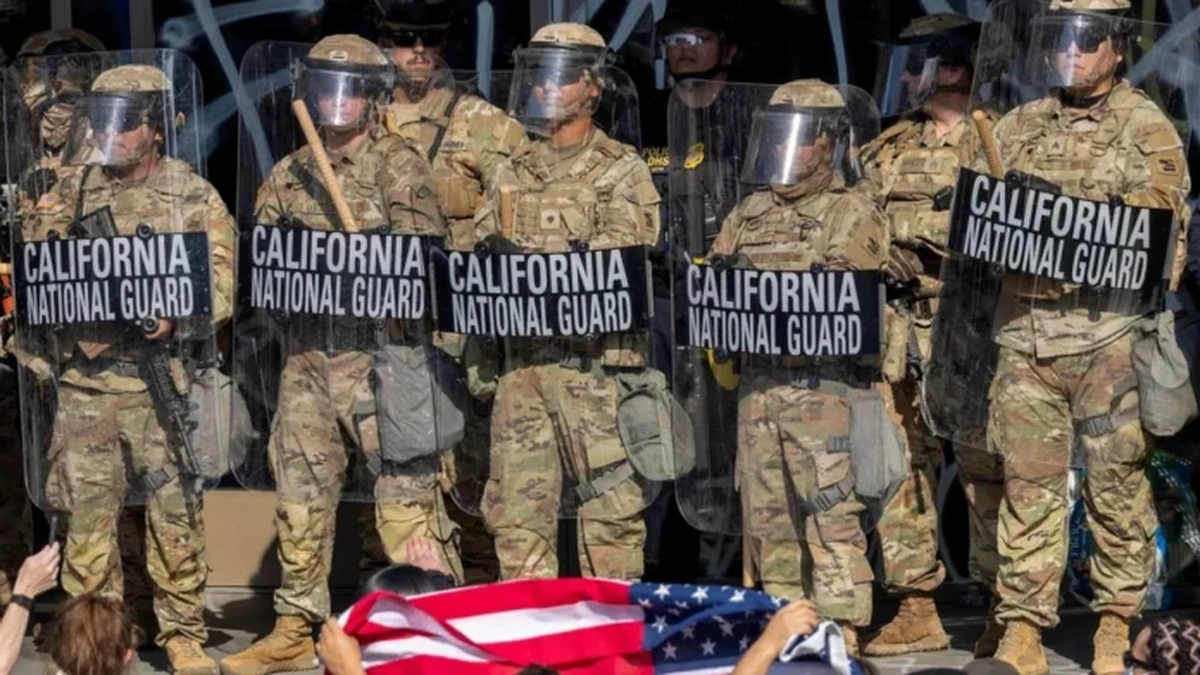Ever wonder what really happens when you hear about a national guard deployment? It’s easy to skim past the news alerts, thinking it’s just another headline. But here’s the thing: these deployments impact real people, real families, and have ripple effects that go way beyond the immediate situation. Let’s dive into the ‘why’ behind the deployments, breaking down what it all means.
Why Now? Understanding the Context
Why are we seeing so many national guard call-ups lately? It’s not a simple answer, and it’s more than just responding to emergencies. Let’s be honest, a lot of factors are at play. Changing geopolitical landscapes, increased domestic unrest, and even strains on active-duty military resources all contribute. Think of the National Guard as a pressure valve – they’re often called upon when other resources are stretched thin. But what fascinates me is how deployments reflect larger societal trends. The increased reliance on the National Guard hints at deeper issues – from budget constraints to evolving security threats.
The National Guard are unique in that they have both a federal and state mission. Most often when a state needs support, it will be the National Guard of that state that will be activated. However, there are times the federal government might activate guard units for deployment to different states. In times of emergency, a quick response is crucial. The agility of National Guard units makes them indispensable.
The Real Impact on Individuals and Communities
Okay, so we know why they’re being deployed. But what does that actually mean for the guardsmen and women involved? And their families? It’s a huge disruption, often on short notice. Imagine being a teacher, a small business owner, or a student, and suddenly you’re called away for months, or even years. It’s not just about leaving a job; it’s about leaving families, putting careers on hold, and dealing with the emotional toll of uncertainty. Deployment significantly impacts their mental health and well-being. The families of deployed service members also experience increased stress. Spouses often take on additional responsibilities. Children may struggle with the absence of a parent. Support programs are often available, but navigating them can be difficult.
Federal vs. State Deployments: What’s the Difference?
Let’s rephrase that for clarity. There are two main types of national guard activation: federal and state. Federal deployments are typically for overseas missions or national emergencies, authorized by the President. State deployments, on the other hand, are authorized by the governor and are usually for domestic issues like natural disasters, civil unrest, or border security. The legal framework governing these deployments is complex, involving both federal and state laws. What makes this distinction important? It affects who controls the Guard, what missions they can be assigned, and how they are funded.
National Guard Deployment: The Training and Preparation
Here’s the thing – people often assume that the National Guard is less prepared than active-duty military. But that’s not necessarily true. While their training schedules might be different, they undergo rigorous preparation for a wide range of scenarios. Depending on their specific mission, guardsmen and women receive specialized training, from disaster response to combat tactics. The level of preparedness can vary between units and states, but the overall goal is to ensure they are ready to respond effectively when called upon. Continuous training and realistic exercises are essential for maintaining readiness. National Guard units often participate in joint exercises with active-duty military and other agencies to improve coordination and interoperability.
Looming Future Deployments and Considerations
Are future national guard deployments inevitable? Sadly, likely. The challenges facing our nation – both at home and abroad – aren’t going away anytime soon. As the active-duty military continues to face budget cuts and personnel shortages, the National Guard will likely play an increasingly important role. This means more frequent deployments, longer deployments, and potentially a greater strain on the guardsmen and women who serve. It’s a complex issue with no easy solutions. What fascinates me is the ongoing debate about the appropriate role of the National Guard. How do we balance their vital contributions with the needs of the individuals and families who serve? And how do we ensure they have the resources and support they need to succeed?
FAQ About National Guard Deployments
What triggers a national guard mobilization?
Mobilization can be triggered by state governors for local emergencies or by the President for national or international crises.
How long do national guard deployments typically last?
Deployment lengths vary widely depending on the mission, ranging from a few weeks to over a year.
Are national guard troops paid during deployments?
Yes, they receive federal pay and benefits while on federal active duty, or state pay when activated by the governor.
What kind of support is available for families during a guard deployment?
The National Guard offers various family support programs, including counseling, financial assistance, and childcare services. Contact your local National Guard family support center to get help.
Can a national guard member refuse a deployment?
Generally, no. Refusal can result in disciplinary action, unless there are specific legal or medical exemptions.
Where can I find reliable national guard news?
Check official National Guard Bureau websites, reputable news sources, and military publications for current information. Always verify the source.
National Guard deployments are more than just headlines; they are about real people, real sacrifices, and the evolving role of citizen-soldiers in our society. Understanding the ‘why’ helps us appreciate the complexities and challenges involved, and hopefully, better support those who serve. You can also visit the National Guard Bureau website for additional information. Let’s remember to be well informed about military mobilization.





